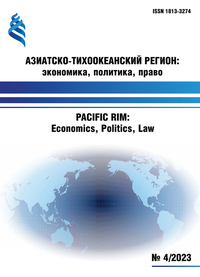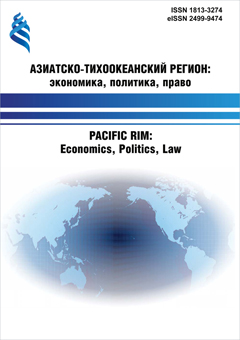LEGAL FEATURES OF THE USE OF ARTIFICIAL INTELLIGENCE FOR ENSURING CYBER SECURITY IN MALAYSIA AND INDONESIA
DOI:
https://doi.org/10.24866/1813-3274/2023-4/167-177Keywords:
artificial intelligence, cybersecurity, cybercrime, Malaysian law, Indonesian law, legal regulation of AI, personal data protection law, Computer Crime Law, Copyright Law, Communications and Multimedia Law, Strategic Trade Law, Personal Data Protection Law, cybersecurity strategy for Malaysia and IndonesiaAbstract
The article provides a comparative legal analysis of approaches to the regulation and use of artificial intelligence in the field of cybersecurity using the example of the countries of the Asia-Pacific region – Malaysia and Indonesia. The main legal acts in the field of personal data protection, copyright, banking and financial sector, security of telecommunication networks, information infrastructure, cybercrimes, as well as issues of bringing to administrative and criminal liability for cybercrimes are considered. State bodies coordinating and implementing cybersecurity issues are listed. Particular attention was paid to the characteristics of the basic concepts disclosed in the acts under study. It is noted that the legal framework of Indonesia contains clearer interpretations of the definitions of a number of concepts in the field of cyber defense compared to Malaysia. However, Malaysian legislation covers a wider range of regulation of public life in the implementation of cybersecurity issues – from medicine to transport. In Indonesia, not all areas are so well regulated to deal with such issues. At the same time, the arsenal of means of protection against cyber-attacks or other illegal actions that encroach on the information and digital environment in Malaysia and Indonesia is approximately the same and differs only in the methods and quality (efficiency) of implementation. The serious and diverse approach of these countries for the further development, changes and improvement of legislation in matters of the use of artificial intelligence in activities to combat cybercrime is emphasized. Despite the contradictions on certain issues, each country seeks to strengthen its tools to combat cyber threats by developing separate national security strategies.



